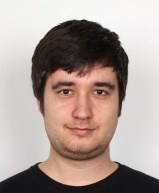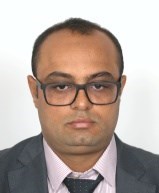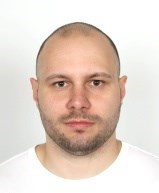PV226 Seminar LaSArIS
The aim of the course is to support the activities of the Laboratory of Software Architectures and Information Systems (Lasaris) in research, development and teaching of theoretical topics and practical problems in building large software systems and deployment of modern information technologies in practice. It deals with the design and development of reliable and secure information systems, process and data modeling, system implementation management, and software technologies for their construction. The seminar makes acquainted with interesting research and development projects solved in Lasaris, particularly in the area of designing large IT and critical infrastructures, for example, to support smart grids. Additionally, external specialists, especially from the IT industry or from abroad, are regularly invited to talk.
In the fall 2020 semester, PV226 hosts 4 specialized seminars:
Process Mining seminar
Course objectives
In this seminar, you will learn many techniques for the analysis of processes based on the recorded events
Syllabus
- Data Mining
- Process Models and Process Discovery
- Different Types of Process Models
- Process Discovery Techniques and Conformance Checking
- Enrichment of Process Models
- Operational Support
Teaching methods
The first half of the course is in the form of e-learning in cooperation with Eindhoven University of Technology, the second half is a project. The seminar will physically take place only some chosen weeks.
Prerequisites
The interest about the data science and this particular domain is enough.
Assessment methods
It is necessary to complete the e-learning course and present the final project.
Teacher

Martin Macák
PhD student
Blockchain seminar
Course objectives
Through this course, students will be provided with a comprehensive understanding of Blockchain. They will learn the methods of securing distributed ledgers. They will also learn the design and implementation of selected Blockchain use-cases. In addition to developing cases of smart contracts, students will work on deploying an Internet of Thing (IoT) network where Blockchain is integrated using a dedicated tool, such as Hyperledger Fabric Composer. Bacem Mbarek will be in charge of this seminar.
Syllabus
- Blockchain
- Smart contract
- Blockchain framework implementation (Hyperledger Fabric)
- Security and Privacy
- Hyperledger caliper: Blockchain Simulator
- Internet of things
Teaching methods
The basics in both theoretical background and hands-on experience on Blockchain applications will be provided. In this regard, the seminar will focus on explaining important concepts, such as modelling blockchains, mining, smart contracts, transaction verification, and virtual identity. Furthermore, the course will introduce some existing Blockchain platforms, as for example Hyperledger Fabric. In order to apply the different concepts presented in the course, students will have hands-on sessions where they will implement and discuss the use of Blockchain in several domains, including Internet of things, finance, logistics, and health.
Prerequisites
Students must have solid skills in programming with C++ or Java languages and have good knowledge of working on a Linux desktop. It is necessary to have the laptop with installed Linux.
Assessment methods
The attendance at the seminars and presentation of the project are required.
Teacher

Bacem Mbarek
Post-doc researcher in cybesecurity and IoT/em>
Machine Learning seminar
Course objectives
Syllabus
- Datasets, Python, Jupyter notebooks and AutoML
- Using a deep neural network to build a movie recommendation engine
- Segmenting customers to clusters for targeted promotions
- Using XGBM/LGBM to detect survival of the population
- Timeseries and LSTMs - forecasting sales and necessary stock
- Analyzing network traffic using SVM
- Fake images using GAN
- Using Genetic Algorithms to play a game (e. g. Flappy bird or Mario)
- Differential evolution to generate electrical circuit
- Natural language processing - detecting disasters from tweets
- How to build a chatbot - common approaches
Teaching methods
In case of Machine Learning seminar, we will focus on the application of machine learning (ML). There will be a necessary explanation of algorithms as a refresher or introduction. We will use existing libraries and focus on building applications to solve real-world problems. Every week there will be exercise to develop algorithm to solve specific problem.
Prerequisites
The interest about the data science and this particular domain is enough.
Assessment methods
The attendance at the seminars and presentation of the project are required.
Teacher

Lukáš Grolig
PhD student
IoT seminář
Course objectives
Syllabus
- Work safety when working with electronics
- Introduction to electric circuits, passive components (resistor, capacitor, inductor)
- Circuit analysis using node voltage method, mesh current method, and superposition.
- Circuit analysis by reverse engineering of existing circuits and how to debug your own
- Introduction to PBC design on basic circuits
- Designing voltage rails for circuit components (power supplies, linear regulators, switching regulators)
- Introduction to microcontrollers
- Integrating analog and digital sensors (SPI, I2C, ADC)
- Selecting and sourcing components (Designing soap dispenser)
- Wifi and Bluetooth in IoT devices
- Working with mains power - relays, triacs (building a smart home, how to control lights and heating)
- IoT services in the cloud - sending data to the cloud and receiving actions back (how to build internet gate opener)
- IoT and mobile control app codesign
Teaching methods
We will give you an introduction to the world of electronics. You will learn the essential components of circuits, how to understand electric circuits, and design your own. You will also learn how to design PCB for production. We will combine it with the application of a microcontroller to give you control of your creation.
Prerequisites
The interest about this particular domain is enough.
Assessment methods
The attendance at the seminars and presentation of the project are required.
Teacher

Lukáš Grolig
PhD student



